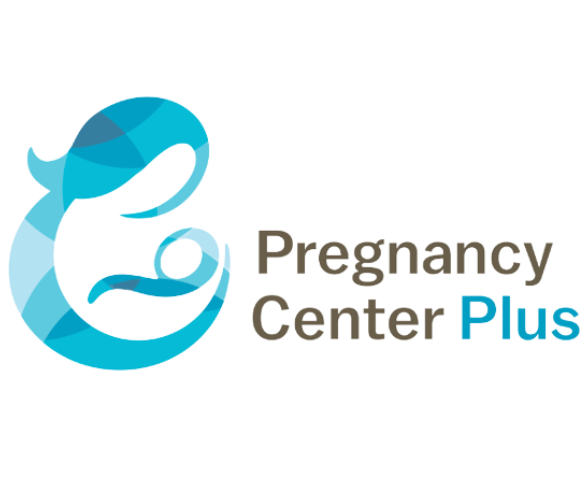What is the Abortion Pill?
A chemical abortion is a procedure that uses pills to end a pregnancy.
The abortion pill, also known as RU-486 (mifepristone), is used in a regimen with another prescription drug called misoprostol, to end an early pregnancy. Early pregnancy is defined as less than 70 days (10 weeks) since your last menstrual period began. Mifepristone is not approved for ending pregnancies that are further along.
The first pill (mifepristone) is taken and blocks the hormone, progesterone, needed for your pregnancy to continue. This pill cuts off the supply of blood and nutrients to the developing embryo.
Within 24 to 48 hours after taking the first pill, a second series of pills called misoprostol is taken at home to cause uterine contractions. The embryo will then be expelled from your uterus within 2 to 24 hours after taking the second set of pills. During this process, you will have cramping and heavy bleeding with large clots that will likely be heavier than your usual period. Up to 7% of women taking the abortion pill will still need a surgical procedure to stop bleeding or because the embryo did not completely pass from the uterus.
Note: If you have a negative blood type, you may need an anti-D injection, so talk about that with your healthcare provider.
Who Should not Take the Abortion Pill?
Do not take the abortion pill if you:
- Have any doubts about the abortion decision or procedure. Take the time to be fully informed.
- Are you being pressured or forced to have an abortion. Laws prohibit the father, guardian, parent, or the courts from forcing you to have an abortion.
- Have a pregnancy that is more than 70 days (10 weeks). The abortion provider must do a clinical examination, an ultrasound, or other testing to determine how far along you are in pregnancy.
- Are using an IUD (intrauterine device). It must be removed before you take the first pill.
- Have been told by a physician that you have a pregnancy outside the uterus (ectopic pregnancy).
- Have problems with your adrenal glands (chronic adrenal failure).
- Take a medicine to thin your blood.
- Have a bleeding problem.
- Have not been blood tested for anemia and negative Rh factor.
- Have porphyria.
- Take certain steroid medicines.
- Are allergic to mifepristone or misoprostol or other medications that list these as ingredients.
- Have obtained pills over the internet from a source other than an abortion clinic.
- Have not had an ultrasound to locate and date the pregnancy.
- Have not had a full panel of STI testing done prior to the abortion
Abortion Pill Cost: It’s important to note that the cost of abortion pills can vary based on several factors, such as the state, provider, clinic, and health insurance coverage.
What Symptoms Should I be Concerned with after Taking the Abortion Pill?
Be sure to contact the abortion clinic or your healthcare provider promptly if you have any of the following:
- Heavy Bleeding: Call immediately if you soak through two thick sanitary pads per hour for two consecutive hours, or if you are concerned about heavy bleeding. Bleeding can be so heavy that it requires a surgical procedure (surgical aspiration or D&C).
- Abdominal Pain or “Feeling Sick”: If you have abdominal pain or discomfort, or you are “feeling sick,” including weakness, nausea, vomiting, or diarrhea, with or without fever, more than 24 hours after taking the first pill, contact your healthcare provider without delay. These symptoms may be a sign of a serious infection or another problem including ectopic pregnancy.
- Fever: In the days after treatment, if you have a fever of 100.4°F or higher that lasts for more than 4 hours, you should contact your healthcare provider right away. Fever may be a symptom of a serious infection or another problem. If you cannot reach the abortion clinic or your healthcare provider, go to the nearest hospital emergency room.
If you visit an emergency room or a healthcare provider who did not give you the abortion pill, you should make them aware that you are having a chemical abortion.
If you think you might still be pregnant after the abortion pill process, please contact your healthcare provider.
Other Names for the Abortion Pill:
Mifeprex = RU-486 = mifepristone
Cytotec = misoprostol
Additional Concerns:
Life-threatening abortion injuries are not always apparent at the time of the procedure. It is important to visit the clinic for a follow-up appointment after the abortion. If you have any unusual physical problems in the weeks that follow your abortion, seek medical attention immediately as you may be having complications.
If you ever have reason to suspect that you are still pregnant after your abortion, seek medical attention immediately. You may have an ectopic (tubal) pregnancy that could rupture and cause death.
If you are a minor and you have an abortion without telling your parents, let them know immediately if you develop problems that you think may be related to the procedure.
If you are thinking about taking the abortion pill, the first step is a pregnancy test. We can provide you with a free pregnancy test. We can also provide an ultrasound to confirm how far along you are in the pregnancy, locate the pregnancy (make sure it is not tubal/ectopic) and confirm that it is a viable pregnancy (the baby has a heartbeat). Make an appointment at the link above or call us at 513-321-3100 to schedule an appointment.
Sources:
Medline Plus
Pubmed.ncbi

